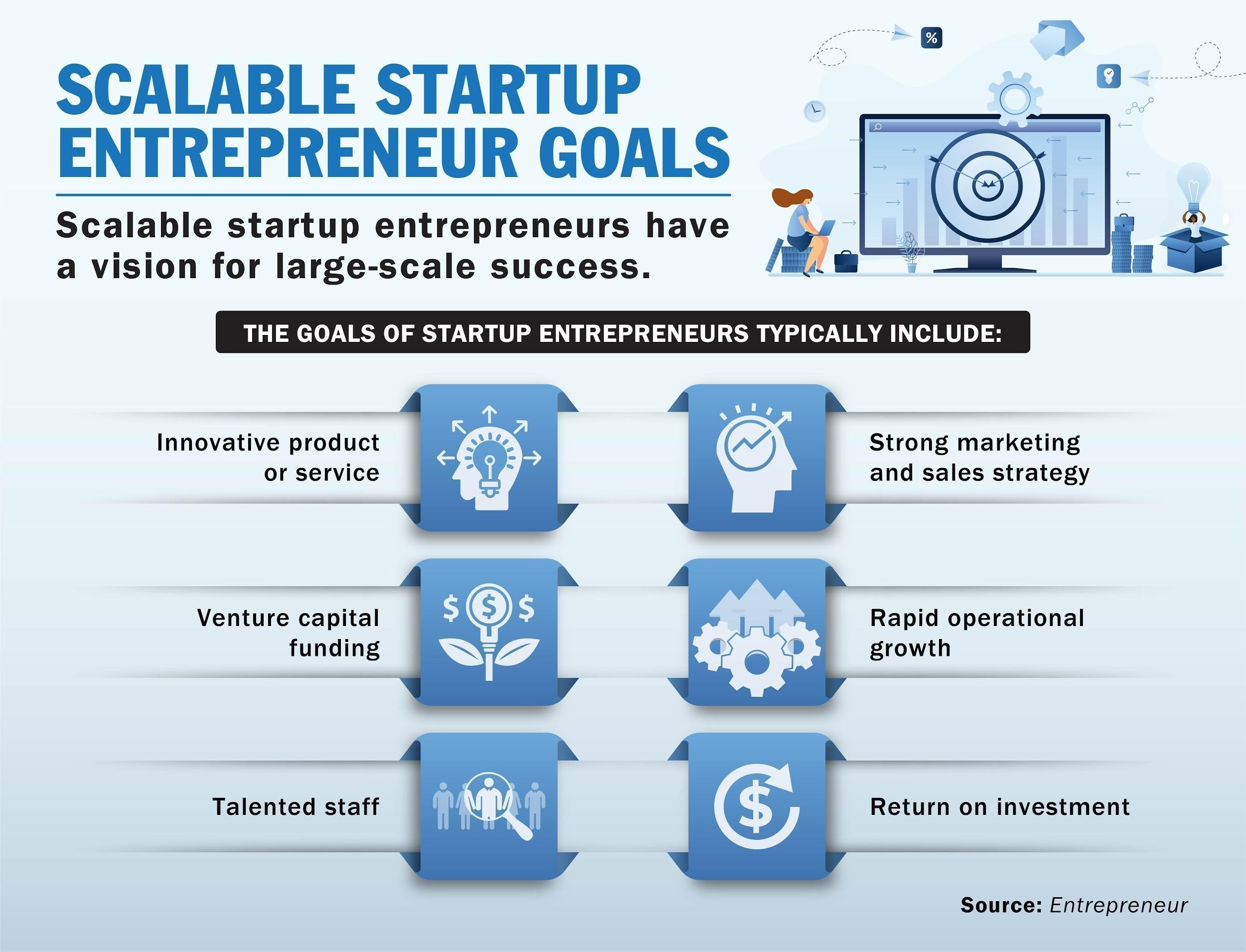Navigating the Challenges of Rapid Growth
Scaling a startup can be a thrilling yet daunting experience. As the business grows, it’s essential to navigate the challenges that come with rapid expansion. One of the most significant obstacles is maintaining company culture. As the team expands, it’s easy to lose sight of the core values and mission that drove the startup’s early success. To combat this, it’s crucial to establish a strong set of core values and ensure that every new hire understands and embodies them.
Another significant challenge is managing finances. As the startup grows, so do its expenses. It’s essential to maintain a tight grip on cash flow, ensuring that the business is generating enough revenue to cover its costs. This may involve securing additional funding, managing budgets, and making strategic investments. Effective financial management is critical to sustaining growth and avoiding financial pitfalls.
Adapting to changing market conditions is also a significant challenge for startups. As the market evolves, startups must be agile and responsive to changes in customer needs, technological advancements, and shifting trends. This requires a deep understanding of the market and a willingness to pivot when necessary. By staying attuned to market developments, startups can stay ahead of the competition and continue to drive growth.
Finally, startups must balance growth with sustainability. This means prioritizing long-term success over short-term gains and making strategic decisions that support the business’s overall vision. By navigating these challenges, startups can set themselves up for sustained growth and success.
Startup growth and scaling require careful planning, strategic decision-making, and a deep understanding of the market. By maintaining a strong company culture, managing finances effectively, adapting to changing market conditions, and prioritizing sustainability, startups can overcome the challenges of rapid growth and achieve long-term success.
Building a Strong Foundation: Essential Elements for Scalable Startups
A solid foundation is crucial for startup growth and scaling. A clear mission statement serves as the North Star, guiding the company’s decisions and actions. It should be concise, yet meaningful, and communicate the startup’s purpose and values. A well-crafted mission statement helps to establish a strong company culture, which is essential for attracting and retaining top talent.
A robust business model is another critical element for scalable startups. It should be designed to generate revenue, manage costs, and drive growth. A successful business model should also be adaptable to changing market conditions and customer needs. By regularly reviewing and refining the business model, startups can ensure they remain competitive and poised for growth.
A talented team is also essential for startup growth and scaling. Hiring the right people with the right skills and experience can make all the difference. Startups should look for individuals who share the company’s values and are passionate about its mission. Providing ongoing training and development opportunities can help to retain top talent and ensure the team is equipped to drive growth.
Effective communication is also critical for building a strong foundation. Startups should establish clear channels of communication, both internally and externally. This includes regular team meetings, transparent decision-making processes, and open communication with customers and stakeholders. By fostering a culture of open communication, startups can build trust, drive collaboration, and ensure everyone is working towards the same goals.
By establishing a clear mission statement, a robust business model, a talented team, and effective communication, startups can build a strong foundation for growth and scaling. This foundation will serve as the bedrock for the startup’s success, enabling it to navigate the challenges of rapid growth and achieve long-term success.
Startup growth and scaling require careful planning, strategic decision-making, and a deep understanding of the market. By building a strong foundation, startups can set themselves up for success and achieve their goals.
How to Develop a Winning Growth Strategy
Developing a winning growth strategy is crucial for startup growth and scaling. A well-crafted growth strategy should be tailored to the startup’s specific needs and goals, and should include a clear understanding of the target market, a unique value proposition, and key performance indicators (KPIs).
Identifying the target market is a critical step in developing a growth strategy. Startups should conduct market research to understand their ideal customer, including their needs, preferences, and pain points. This information can be used to develop a unique value proposition that sets the startup apart from its competitors.
A unique value proposition is a statement that clearly communicates the startup’s value to its customers. It should be concise, yet meaningful, and should highlight the startup’s key differentiators. By developing a strong value proposition, startups can differentiate themselves from their competitors and attract new customers.
Establishing KPIs is also essential for measuring the success of a growth strategy. Startups should track metrics such as customer acquisition costs, retention rates, and revenue growth to understand the effectiveness of their strategy. By regularly reviewing and refining their KPIs, startups can make data-driven decisions and optimize their growth strategy.
In addition to these elements, a winning growth strategy should also include a clear understanding of the startup’s competitive landscape. Startups should conduct competitor research to understand their strengths and weaknesses, and should develop strategies to stay ahead of the competition.
By developing a tailored growth strategy that includes a clear understanding of the target market, a unique value proposition, and KPIs, startups can drive growth and achieve their goals. A well-crafted growth strategy is essential for startup growth and scaling, and can help startups to achieve long-term success.
Startup growth and scaling require careful planning, strategic decision-making, and a deep understanding of the market. By developing a winning growth strategy, startups can set themselves up for success and achieve their goals.
Scaling Your Team: Effective Hiring and Talent Management
As a startup grows, it’s essential to build a high-performing team that can support the company’s expansion. Effective hiring and talent management are critical components of startup growth and scaling. Startups should focus on attracting top talent, providing ongoing training and development opportunities, and fostering a positive company culture.
When hiring, startups should look for individuals who share the company’s values and are passionate about its mission. It’s essential to clearly define the role and responsibilities of each position, as well as the skills and qualifications required. Startups should also use a variety of recruitment channels, including social media, job boards, and employee referrals, to attract a diverse pool of candidates.
Once hired, startups should provide ongoing training and development opportunities to help employees grow and develop their skills. This can include mentorship programs, workshops, and conferences, as well as opportunities for advancement and promotion. By investing in their employees, startups can improve job satisfaction, reduce turnover, and increase productivity.
Fostering a positive company culture is also essential for startup growth and scaling. Startups should prioritize open communication, transparency, and collaboration, and encourage employees to share their ideas and feedback. By creating a positive and inclusive work environment, startups can attract and retain top talent, improve job satisfaction, and drive growth.
In addition to these strategies, startups should also prioritize diversity and inclusion when building their team. By attracting a diverse pool of candidates, startups can bring new perspectives and ideas to the table, improve innovation, and drive growth. Startups should also prioritize creating a culture of inclusion, where all employees feel valued and respected.
By focusing on effective hiring and talent management, startups can build a high-performing team that can support the company’s growth and scaling. By prioritizing diversity and inclusion, providing ongoing training and development opportunities, and fostering a positive company culture, startups can drive growth, improve job satisfaction, and achieve long-term success.
Startup growth and scaling require careful planning, strategic decision-making, and a deep understanding of the market. By building a high-performing team, startups can set themselves up for success and achieve their goals.
Optimizing Operations for Efficient Growth
As a startup grows, it’s essential to optimize operations to support rapid expansion. Streamlining operations can help startups to reduce costs, improve efficiency, and increase productivity. One way to achieve this is through process automation. By automating repetitive tasks and processes, startups can free up resources and focus on high-value activities.
Outsourcing is another strategy that startups can use to optimize operations. By outsourcing non-core functions, such as accounting or human resources, startups can reduce costs and improve efficiency. This can also help to free up resources and allow startups to focus on their core business.
Leveraging technology is also essential for optimizing operations. Startups can use technology to automate processes, improve communication, and enhance productivity. This can include using project management tools, customer relationship management (CRM) software, and other digital solutions.
Another key aspect of optimizing operations is to focus on continuous improvement. Startups should regularly review and refine their processes to ensure they are operating efficiently and effectively. This can involve soliciting feedback from employees and customers, identifying areas for improvement, and implementing changes.
By optimizing operations, startups can improve their chances of success and achieve sustainable growth. By streamlining processes, outsourcing non-core functions, leveraging technology, and focusing on continuous improvement, startups can reduce costs, improve efficiency, and increase productivity.
Startup growth and scaling require careful planning, strategic decision-making, and a deep understanding of the market. By optimizing operations, startups can set themselves up for success and achieve their goals.
In addition to these strategies, startups should also prioritize scalability when optimizing operations. This means designing processes and systems that can grow and adapt with the business. By prioritizing scalability, startups can ensure that their operations can support rapid growth and expansion.
Managing Finances for Sustainable Growth
Financial planning and management are critical components of startup growth and scaling. Startups need to secure funding, manage cash flow, and make strategic investments to support their growth. One way to secure funding is through venture capital or angel investors. Startups should prepare a solid business plan and pitch to attract investors.
Managing cash flow is also essential for startups. This includes monitoring expenses, managing accounts receivable and payable, and maintaining a cash reserve. Startups should prioritize cash flow management to avoid financial difficulties and ensure sustainable growth.
Making strategic investments is another key aspect of financial management for startups. This includes investing in research and development, marketing, and talent acquisition. Startups should prioritize investments that align with their growth strategy and provide a strong return on investment.
Financial planning and management are critical for startup growth and scaling. By securing funding, managing cash flow, and making strategic investments, startups can support their growth and achieve sustainable success.
Startup growth and scaling require careful financial planning and management. By prioritizing financial management, startups can avoid financial difficulties, ensure sustainable growth, and achieve their goals.
In addition to these strategies, startups should also prioritize financial transparency and accountability. This includes maintaining accurate financial records, providing regular financial updates to stakeholders, and ensuring compliance with financial regulations.
By prioritizing financial transparency and accountability, startups can build trust with investors, customers, and employees, and ensure sustainable growth and success.
Measuring Success: Key Metrics for Evaluating Growth
Measuring success is crucial for startup growth and scaling. Startups need to track key metrics to evaluate their growth and success. One of the most important metrics is customer acquisition cost (CAC). This metric measures the cost of acquiring a new customer, including marketing and sales expenses.
Another key metric is retention rate. This metric measures the percentage of customers retained over a certain period. A high retention rate indicates a strong customer relationship and a low churn rate.
Revenue growth is also a critical metric for startups. This metric measures the increase in revenue over a certain period. A high revenue growth rate indicates a successful business model and a strong market demand.
Startups should also track other key metrics, such as customer lifetime value (CLV), return on investment (ROI), and net promoter score (NPS). These metrics provide valuable insights into customer behavior, revenue growth, and customer satisfaction.
By tracking these key metrics, startups can evaluate their growth and success, identify areas for improvement, and make data-driven decisions. This is essential for startup growth and scaling, as it enables startups to optimize their business model, improve customer satisfaction, and increase revenue growth.
Startup growth and scaling require careful measurement and evaluation. By tracking key metrics, startups can ensure sustainable growth and success.
In addition to these metrics, startups should also prioritize data-driven decision-making. This involves using data and analytics to inform business decisions, rather than relying on intuition or anecdotal evidence.
By prioritizing data-driven decision-making, startups can ensure that their decisions are informed by accurate and reliable data, rather than guesswork or assumptions.
Staying Agile: Adapting to Changing Market Conditions
As a startup navigates the challenges of rapid growth, it’s essential to maintain agility in the face of changing market conditions. The ability to adapt quickly to new trends, technologies, and customer needs is crucial for sustained success. In today’s fast-paced business landscape, startups must be prepared to pivot when necessary, embracing a culture of continuous innovation and improvement.
To stay ahead of the competition, startups should prioritize market research and analysis, leveraging data and insights to inform strategic decisions. This involves monitoring industry trends, tracking customer feedback, and analyzing competitor activity. By staying attuned to the market, startups can identify opportunities for growth and innovation, making data-driven decisions that drive business forward.
Another key aspect of maintaining agility is fostering a culture of experimentation and learning. Startups should encourage a mindset of calculated risk-taking, empowering teams to test new ideas and approaches. This involves embracing failure as a valuable learning experience, using it as an opportunity to refine and improve. By fostering a culture of experimentation, startups can drive innovation and stay ahead of the curve.
Technology also plays a critical role in maintaining agility, enabling startups to streamline operations, enhance productivity, and drive growth. By leveraging cloud-based solutions, automation tools, and data analytics platforms, startups can optimize their operations, freeing up resources to focus on high-value activities. Additionally, technology can facilitate collaboration and communication, enabling remote teams to work seamlessly together.
In the context of Startup Growth and Scaling, agility is critical for navigating the challenges of rapid expansion. By maintaining a flexible and adaptable approach, startups can respond quickly to changing market conditions, staying ahead of the competition and driving sustained growth. Whether it’s pivoting to a new business model, adapting to new technologies, or responding to shifts in customer demand, agility is essential for success in today’s fast-paced business landscape.
Ultimately, staying agile requires a mindset shift, one that prioritizes flexibility, adaptability, and continuous innovation. By embracing this mindset, startups can unlock new opportunities for growth, driving success in an ever-changing market. As the business landscape continues to evolve, one thing is clear: agility is key to sustained success in the world of Startup Growth and Scaling.






